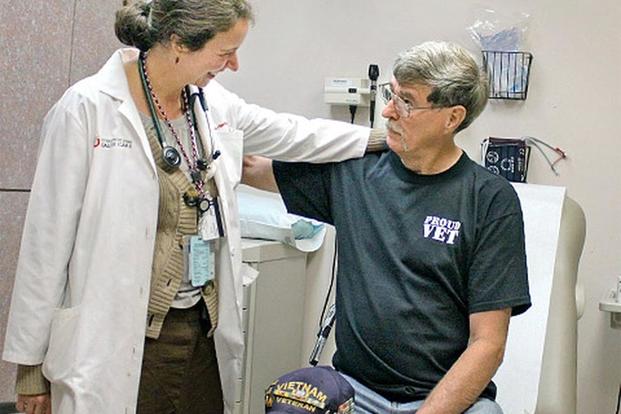More than 30 Veterans Service Organizations have backed Senate proposals to fund the recently passed VA Mission Act, which expands private health care options.
The proposals, which are opposed by the White House, would give up to $55 billion in funding over five years.
The bill, signed into law by President Donald Trump earlier this month, provided $5.2 billion in funding to keep the current Veterans Choice and Accountability Act running through next May while the Department of Veterans Affairs puts in place the VA Mission Act.
The Choice program pushes some veterans to private care in lieu of care at VA hospitals or clinics, while the Mission Act aims to overhaul Choice and consolidate programs.
The Mission Act also lifted restrictions on caregiver benefits for disabled veterans. The caregiver benefits program had been limited to post/9-11 veterans, but the VA Mission Act opened it to veterans of all eras.
But funding for the VA Mission Act beyond next May has been left in limbo, putting the White House and Senate appropriators at odds on a plan for how to pay for it.
The coalition of veterans groups has urged support for the "Complete the Mission Amendment."
The amendment would "allow Congress to provide VA with sufficient resources required to implement the provisions of the VA Mission Act without triggering sequestration or requiring cuts to other VA programs,” they wrote Tuesday in a letter sent to Senate leaders of both parties.
That amendment was sponsored by Sen. Richard Shelby, R-Alabama, chairman of the Senate Appropriations Committee, and Sen. Patrick Leahy, D-Vermont, vice chairman of the Committee.
The problem, the veterans groups said, was that in passing the VA Mission Act Congress moved funding for it "from mandatory appropriations to a new discretionary program that must fit within overall domestic discretionary caps."
"However, the current domestic discretionary budget cap for FY 2019, and the anticipated caps for FY 2020 and FY 2021, did not contemplate the new and increased costs associated with the VA Mission Act," the groups said in the letter. "As such, Congress may not have the ability to fully fund all of the programs, benefits and services that our veterans, their families and survivors have earned."
The letter went to Senate Majority Leader Mitch McConnell, R-Kentucky; Senate Minority Leader Chuck Schumer, D-New York; Sen. Johnny Isakson, R-Georgia, chairman of the Senate Veterans Affairs Committee; and Sen. Jon Tester, D-Montana, ranking member of SVAC.
Sen. Shelby's proposed amendment to lift the caps on discretionary spending to fund the VA Mission Act has been opposed by the White House, which favors offsetting the costs of the veterans bill through cuts to other programs.
In a memo circulated to Republican senators earlier this month, White House officials said Shelby's proposals were "anathema to responsible spending" and would lead to "virtually unlimited increases" in veterans' spending on private health care, the Washington Post reported.
The White House memo contrasted with Trump's exuberance in signing the bill earlier this month.
"There's never been anything like this in the history of the VA," Trump said at the White House ceremony where he signed the VA Mission Act, formally known as the Maintaining Internal Systems and Strengthening Integrated Outside Network Act.
The bill is set to eventually replace the Choice Act, which was enacted in haste in 2014 in response to scandals concerning lengthy VA wait times for appointments. That law has been the target of criticism from veterans and private care doctors, who complain of late payments and delayed appointments.
-- Richard Sisk can be reached at Richard.Sisk@Military.com.














